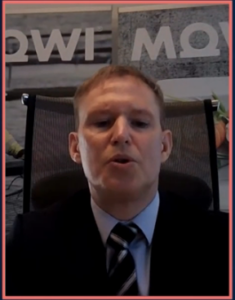Troublesome year for Mowi Scotland despite group Q3 record

Mowi today announced a record-breaking third quarter with best yet revenues of 1.257 billion euros (£1.058bn) – an increase of €223m (£196m) on the same period last year.
In Scotland however, while there were improvements the company’s Scottish arm has experienced a “troublesome year” with biological issues continuing to create problems.
Mowi’s global operational profit or EBIT rose from €131m (£114m) to €240m (£210m). As a result, the company plans to distribute NOK 879m or more than £70m to shareholders.
CEO Ivan Vindheim said despite another record performance, the quarter was overshadowed by the Norwegian government’s announcement of a proposed resource rent tax of 40% on salmon farming, leading to a total corporate tax rate for the company of 62%.
He warned: “The aquaculture industry is of great importance for the future of Norway, and it is in the nation’s best interests to see it grow.
“However, a tax rate of 62% will put an end to most of the many significant investment plans along the Norwegian coast, leading not only to reduced local employment levels now and in the future, but also to a massive diversion of funds away from coastal communities.”
Vindheim confirmed that until agreement has been reached on a more viable framework for the industry, Mowi has been forced to put all new structural investments in Norway on hold.
“Mowi is a global company and salmon farming is not bound by geography – it can take place in sea and on land anywhere in the world, close to its major markets. If the proposal for 62% tax is approved by parliament, Norway stands to lose its leading position within aquaculture to other countries,” he said.
The group has just moved back into Iceland with the purchase of a majority of the shares in Arctic Fish from Norway Royal Salmon (now part of SalMar.
The Norway and Chile divisions performed particularly well, delivering the bulk of group profits.
Mowi Scotland produced an operational EBIT of €4.2m (£3.7m) against €13.4m (£11.75m) last year.
The company said: “In the third quarter, the low-performing stocks grown from externally sourced eggs (in Scotland) were harvested out, resulting in high released cost. This, combined with high mortality from difficult environmental conditions as a result of micro-jellyfish blooms, significantly impacted cost in the quarter. These effects were partly offset by improved prices.
“The overall price achieved was 11% above the reference price in the quarter (25% above). Contribution from contracts relative to the reference price was positive in the third quarter of both 2022 and 2021.
Contract sales represented 61% of total sales in the quarter (Q3 2021: 46%). The third quarter harvest volume was 14,494 gutted weight tonnes (GWT), showing little change from 14,968 tonnes in the same quarter last year. This was despite average harvest weight being 28% lower, following accelerated harvesting to manage biological challenges.
The Scotland report continued: “Full cost per kg was high in the quarter. Released-from-stock costs were high as a result of a prolonged period of low growth and high mortality for stocks grown from externally sourced eggs.
“These eggs were introduced in the absence of other options following the EU-imposed export ban on Norwegian eggs in 2019. These stocks were harvested out in the third quarter.”
Non-seawater costs were significantly impacted by incident-based mortality of €7.6m million (€1.5m last year), or €0.52/kg, related to micro-jellyfish blooms around Skye and the Western Isles causing elevated mortalities in some of Mowi’s farms.
The report says: “As a response to these challenges several fish groups were relocated to other sites with good results. Sea lice levels and AGD challenges were relatively low in the quarter.
“Our Scottish farming operations have experienced a troublesome year with regards to biology and the 2022 volume guidance has been reduced to 50,000 GWT. However, we expect a recovery in 2023 with a volume guidance of 65,000 GWT.”
Mowi Ireland reported an operational loss of €2.6m (£2.3m) against an operational profit of €4.1m (£3.6m) 12 months ago.
Mowi said earnings from its Irish business, as with Scotland, were significantly impacted by gill pathology issues caused by micro-jellyfish.

Ivan Vindheim, Mowi

